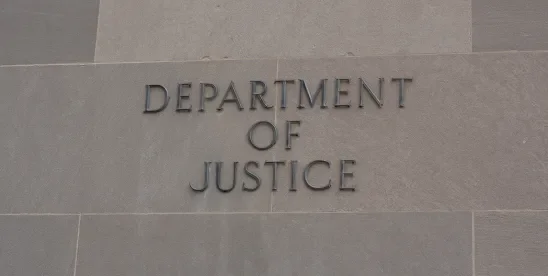Attorney General (AG) Pam Bondi has issued a directive that both: (1) effectively shifts the DOJ’s FCPA enforcement focus towards those cases related to foreign bribery involving cartels and transnational criminal organizations (TCOs); and (2) expands the DOJ’s ability to prosecute certain types of FCPA violations.
Questions around how and to what extent FCPA enforcement will be impacted under the current Trump administration have been swirling. While early into President Trump’s second term, his administration has already taken steps aimed at implementing substantive changes throughout the Executive Branch, reforming the DOJ, as well as reducing the size of the federal workforce. This has led many to anticipate the potential scaling back of FCPA enforcement efforts in the near future.
Shift in FCPA Enforcement Focus
AG Bondi has recently issued fourteen memos, addressed to all DOJ employees, detailing new policies and priorities for the DOJ across a range of enforcement activities. The FCPA was specifically named in the “Total Elimination of Cartels and Transnational Criminal Organizations” directive (the “Directive”). The Directive provides more insight as to the DOJ’s priorities around FCPA enforcement going forward.
Specifically, the Directive states that “[t]he Criminal Division’s FCPA Unit shall prioritize investigations related to foreign bribery that facilitates the criminal operations of Cartels and TCOs, and shift focus away from investigations and cases that do not involve such a connection.”
The Directive also overrides certain sections of the Justice Manual, as it relates to foreign bribery involving cartels or TCOs, that required FCPA cases to be either conducted by Fraud Section prosecutors or approved by the Criminal Division. In other words, U.S. Attorney Offices are now empowered to also pursue criminal FCPA cases involving foreign bribery and cartels or TCOs – no longer requiring approval to bring such matters – having provided 24 hours notice to the Criminal Division before proceeding.
FCPA Background
The FCPA is a two-pronged federal statute that contains anti-bribery provisions as well as accounting provisions; the accounting provisions address both internal controls (e.g., maintaining robust internal systems designed to prevent and identify corrupt activities) and books and records (e.g., maintaining accurate records that make it challenging to hide improper payments). The DOJ and SEC have dual enforcement authority over the FCPA, with the DOJ pursuing criminal violations of the FCPA and the SEC handling civil matters pertaining to publicly traded companies.
Since the FCPA was enacted in 1977, enforcement has focused on targeting corporate corruption where companies – including through, indirectly or directly, their third-party intermediaries (e.g., consultants, distributors, sales agents, etc.) – have improperly gained or retained unfair business advantages in exchange for providing something of value to foreign government officials. With the current shift in FCPA enforcement priorities, the DOJ is anticipated to redirect efforts away from targeting bribery in the context of legitimate corporate industries to focusing on bribery schemes in connection with organized crime and cartels.
It will be interesting to see how objectives under the Directive play out, given the logistics of the FCPA. For instance, the FCPA’s scope covers issuers (publicly traded companies with securities listed on a national securities exchange in the U.S.), domestic concerns (U.S. companies or U.S. persons), as well as any other persons that engage in acts furthering corruption while in the U.S. These limitations may exclude many individuals and entities involved in cartels or TCOs. In other words, the FCPA’s design – considering its jurisdictional reach and entity-focus – may limit its effectiveness as a tool against organized crime.
Why Compliance Still Matters
While DOJ’s FCPA enforcement priorities may be shifting under the Trump Administration to focus on cartels and TCOs, this should not be read as DOJ will no longer pursue other forms of foreign corruption. The Directive does not suggest any plans to repeal or even weaken the FCPA, rather the Directive refocuses DOJ’s FCPA enforcement priorities.
For nearly two decades, the FCPA has been a cornerstone of DOJ’s corporate enforcement efforts. This continued focus has resulted in steady and substantial financial recoveries – with penalties exceeding one billion dollars in some cases – over the course of several presidential terms spanning both Democratic and Republican leadership, including President Trump’s first term. Precedent suggests that FCPA enforcement is an entrenched priority for the DOJ and SEC, transcending individual administrations and political affiliations. Further, several countries have also enacted similar anti-bribery and anti-corruption regulations. When pursuing FCPA resolutions, international cooperation between the U.S. and foreign authorities has been essential in order to navigate the complexities of FCPA cases, which usually involve international transactions, multiple actors, and diverse legal frameworks.
Regarding corporate compliance programs, the DOJ will frequently give credit when considering the appropriate resolution, monetary penalty, and subsequent compliance obligations, if the company is able to demonstrate it has a robust and well-designed compliance program, including having made improvements to the program in response to the investigated misconduct. In other words, a company may be able to secure a more favorable outcome if it maintains a strong compliance program, which may ultimately result in the DOJ determining not to prosecute.
There are other benefits for companies that invest in their compliance programs:
- Risk Management: Robust compliance programs help prevent potential compliance issues before they occur. Further, early detection of potential violations allows for timely intervention, remediation, and disclosure, if necessary.
- Informed Decision-Making: Companies are better positioned to make strategic business decisions with a strong compliance foundation. This includes evaluating and responding to potential enforcement-related situations.
- Long-Term Business Integrity: Maintaining high compliance standards fosters a culture of ethical business practices, which can enhance a company’s reputation and promote stakeholder confidence.
- Adaptability to Regulatory Changes: A well-designed and effective compliance program is more easily adaptable to shifting regulatory landscapes and emerging risks, enabling companies to more efficiently respond to new enforcement trends.
Takeaway
Regardless of the DOJ’s FCPA enforcement priorities shifting, companies will continue to meaningfully benefit from maintaining and investing in their compliance programs. Further, the Directive does not impact SEC enforcement of FCPA violations; in other words, issuers that fall under the SEC’s jurisdiction will need to continue to comply with the FCPA regardless of DOJ’s shift in FCPA enforcement focus. Moreover, the applicable statute of limitations for FCPA violations generally extends beyond the current administration. Ultimately, companies would be well advised to continue to ensure that their compliance programs are effective and well-resourced in order to mitigate risks.




 />i
/>i

